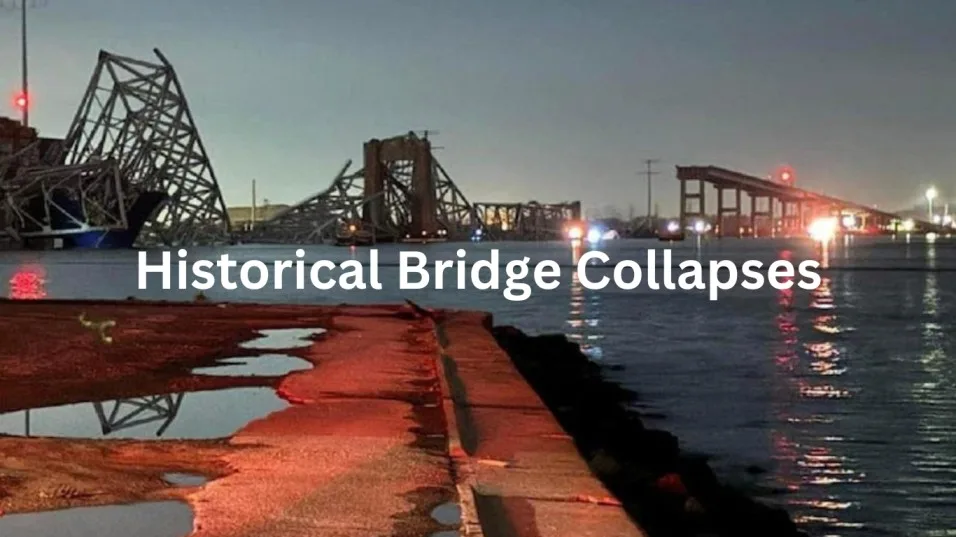Introduction to the Baltimore Bridge Collapse
The tranquil flow of the Patapsco River in Baltimore was disrupted when a towering bridge, an emblem of the city’s infrastructure, succumbed to the force of a massive container ship. The incident sent shockwaves through the community, raising concerns about safety and infrastructure resilience.
Details of the Incident
Location and Description
The bridge, spanning the majestic Patapsco River, served as a vital artery for commuters and freight traffic. Its collapse not only severed a critical transportation link but also posed significant risks to public safety and economic activities in the region.
Cause of the Collapse

Preliminary reports indicate that the collapse was triggered by a collision with a container ship navigating the river. The impact of the vessel against the bridge’s supports caused structural failure, leading to its dramatic collapse into the swirling waters below.
Impact on Transportation and Infrastructure
Disruption to Traffic
The sudden loss of the bridge plunged the city into chaos, with traffic gridlock spreading across arterial routes. Commuters faced extensive delays and detours, while businesses grappled with logistical challenges stemming from disrupted supply chains.
Baltimore Bridge Collapse ,Damage Assessment
Engineers and authorities swiftly mobilized to assess the extent of the damage inflicted by the collapse. Structural evaluations revealed severe structural compromise, necessitating immediate action to mitigate further risks to public safety.

Response and Recovery Efforts
Emergency Services’ Response
In the wake of the collapse, emergency services sprang into action, orchestrating rescue operations and ensuring the safety of affected individuals. Their prompt response helped avert potential tragedies and provided critical support to those impacted by the incident.
Salvage Operations
Salvage crews worked tirelessly to clear debris and salvage remnants of the collapsed bridge from the riverbed. Their efforts were instrumental in restoring navigability to the Patapsco River and facilitating the eventual reconstruction of the bridge.
Similar Incidents and Lessons Learned
Historical Baltimore Bridge Collapse
The Baltimore Bridge collapse joins a litany of historical bridge failures that have underscored the importance of robust infrastructure maintenance and safety protocols. From the Tacoma Narrows Bridge to the Morandi Bridge in Genoa, these incidents serve as sobering reminders of the perils inherent in neglecting infrastructure upkeep.

Engineering and Safety Considerations
The aftermath of the collapse prompted a critical examination of engineering practices and safety standards governing bridge construction and maintenance. Heightened scrutiny of structural vulnerabilities and proactive maintenance strategies are imperative to prevent similar catastrophes in the future.
Rebuilding and Future Plans
Timeline for Reconstruction
While the immediate focus remains on stabilizing the situation and restoring normalcy to the affected area, plans for the bridge’s reconstruction are already underway. Engineers are devising innovative solutions to expedite the rebuilding process without compromising on safety or quality.
Improved Safety Measures
The tragedy has galvanized efforts to enhance bridge safety measures and resilience against unforeseen events. From advanced monitoring systems to enhanced collision avoidance mechanisms, stakeholders are committed to implementing proactive measures to safeguard critical infrastructure assets.
Conclusion
The collapse of the bridge in Baltimore serves as a poignant reminder of the fragility of infrastructure in the face of natural and man-made hazards. As communities come together to rebuild and fortify their defenses against future calamities, the incident underscores the imperative of prioritizing safety and resilience in infrastructure planning and management.
FAQs
Was anyone injured in the bridge collapse?
Fortunately, there were no injuries or fatalities reported due to the collapse. However, the incident caused significant disruption and property damage.
What’s the timeline looking like for getting that bridge back up and running?
The timeline for reconstruction depends on various factors, including the extent of the damage and the efficiency of the rebuilding efforts. Authorities are working diligently to expedite the process while ensuring the highest standards of safety and quality.
What steps are being implemented to avoid similar occurrences down the road?
Engineers and policymakers are reassessing safety protocols and implementing enhanced monitoring systems to detect potential threats to bridge integrity. Furthermore, there are endeavors underway to enhance collision prevention systems, all aimed at reducing the likelihood of similar mishaps happening again.
Will the new bridge be more resilient to collisions?
Yes, the design of the new bridge will incorporate lessons learned from the collapse to enhance its resilience against potential collisions. Advanced engineering techniques and materials will be employed to bolster structural integrity and mitigate the impact of unforeseen events.
How can commuters cope with the disruption caused by the bridge collapse?
Commuters are advised to seek alternative routes and modes of transportation to navigate around the affected area. Local authorities are working to alleviate congestion and facilitate smooth traffic flow during the reconstruction phase.

